Last weekend I went down to my parents’ house to make some cider. Our neighbour has a cider press and a load of demijohns. We got enough apples for about 100 litres of cider and plenty of bottles of apple juice.
We got apples from three different gardens in the village, so we had plenty of variety. There were a few unknown varieties but the majority of the apples came from a Lady Sudeley tree, which has very pink sweet apples, sometimes even the skin is pink. We also had some bramley cookers and various green dessert apples. In preparation I went to the Brewstore in Edinburgh and got a few different types of yeast. I got a Sweet Bulldog Brews Cider Yeast, a Medium Brewstore Premium Cider Yeast, and a Dry Fermentis SafCider Yeast.
The process went like this. First we floated the apples in water to wash off any bits of bird muck, or insects.
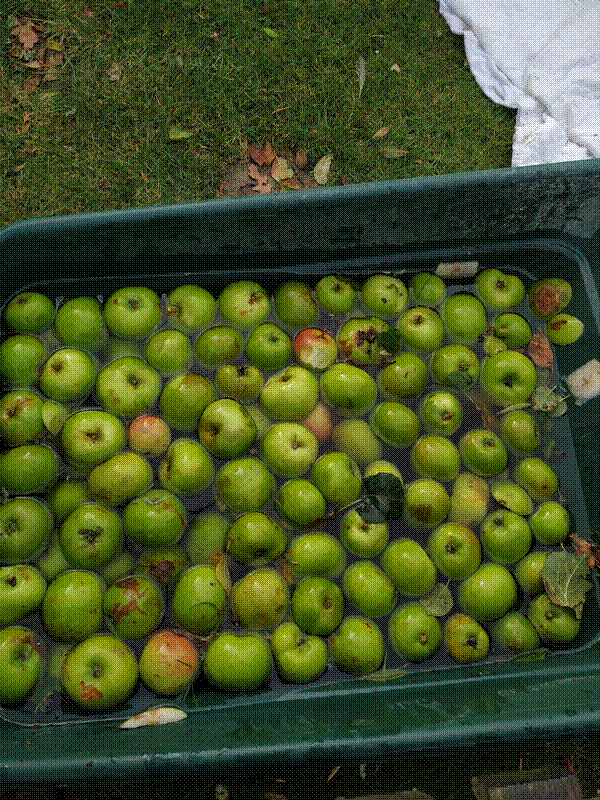
Then we cut the apples into thick slices.
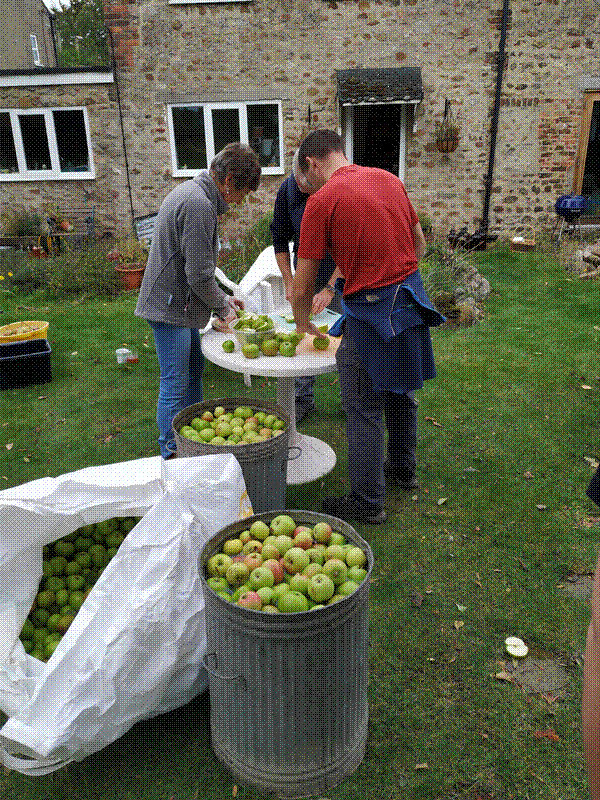
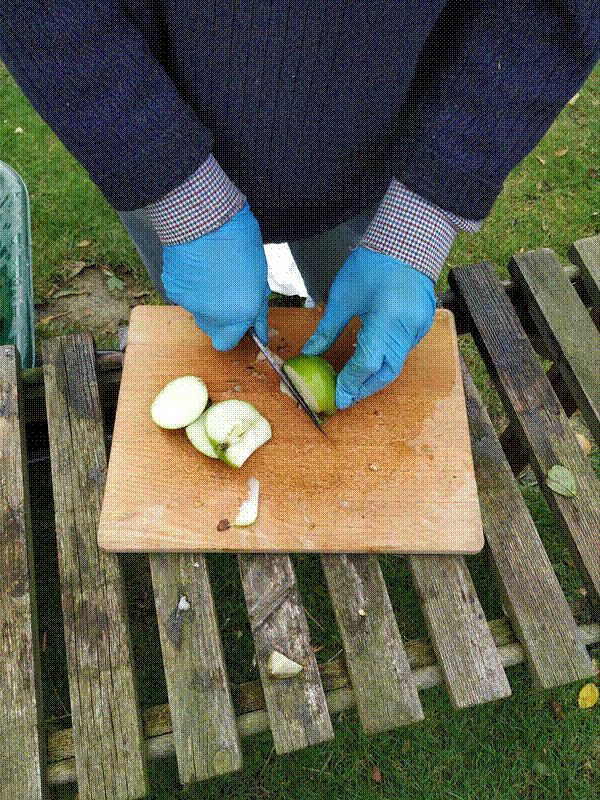
Then we put the slices through a garden shredder, like the one seen here , which produces a juicy pulp. Then we put the pulp into the cider press and filled up buckets from the pressed pulp.
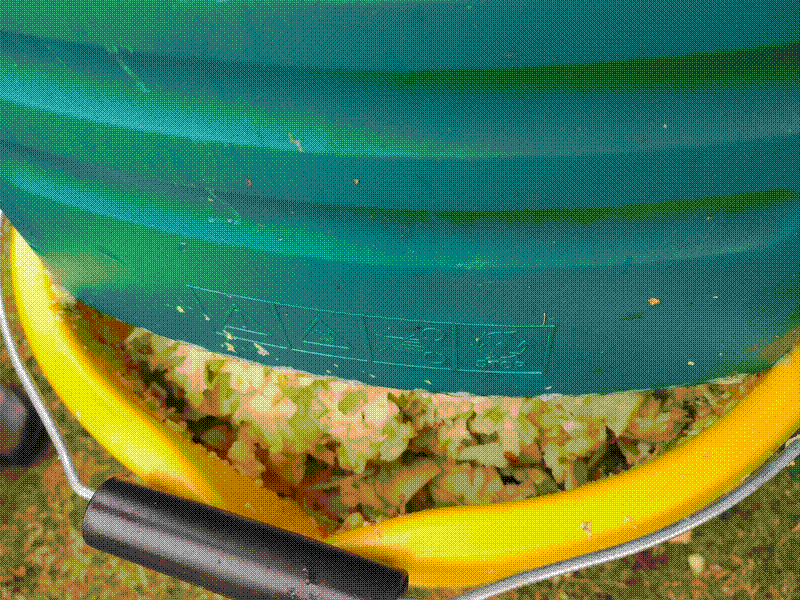
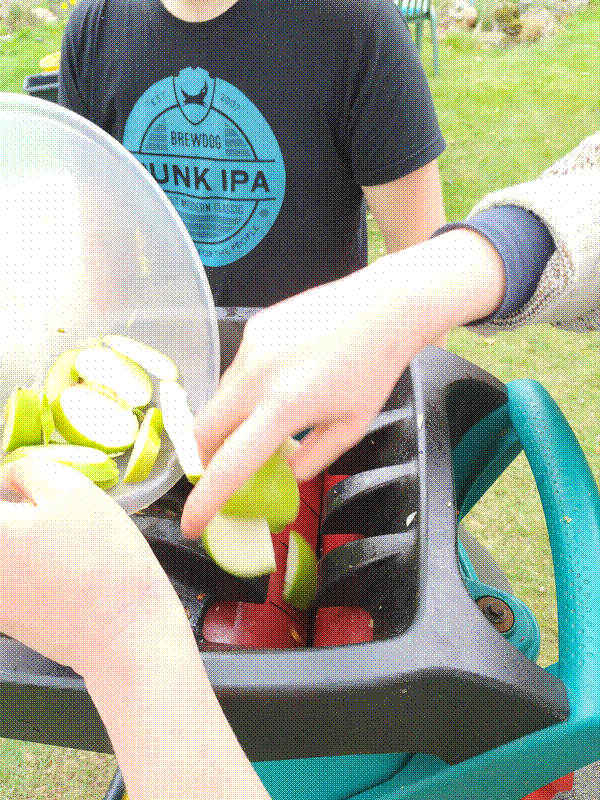
Finally, we mixed the different juices in demijohns and added the yeast.
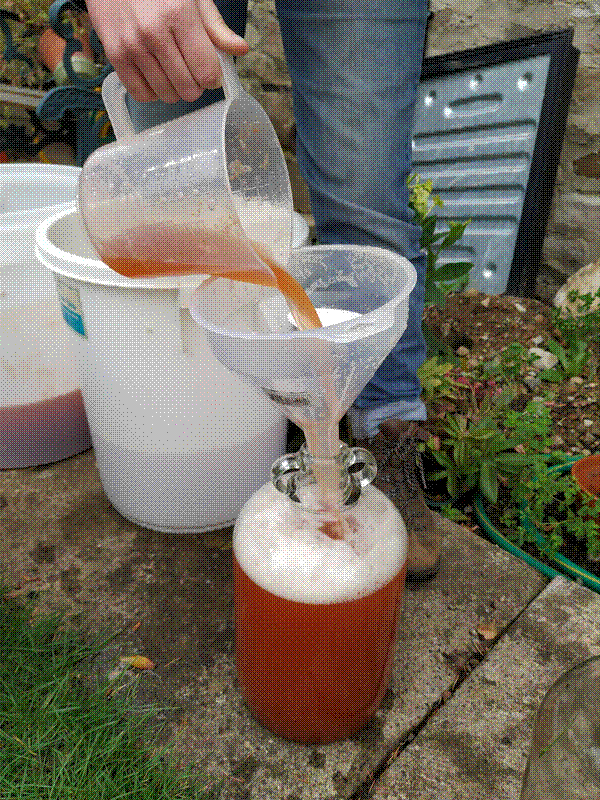
I wrote on the demijohns the combinations of apples and the yeast I used.
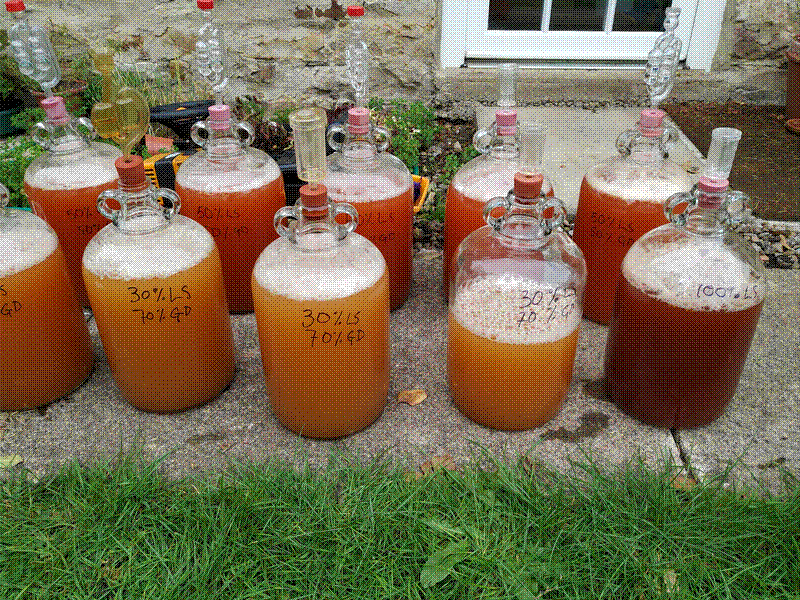
This is a rundown of the apples and yeast combinations:
Fruit:
- LS - Lady Sudeley - West Farm
- BM - Bramley - David Burk’s
- GE - Green Eaters - Mike Cooper’s
- GD - Green Dessert - Mike Cooper’s - Have a few cooking apples mixed in, maybe 5-10%
- P - Pears - West Farm
Yeast:
- S - Sweet - Bulldog Brews Cider Yeast
- M - Medium - Brew Store Premium Cider Yeast
- D - Dry - Fermentis SafCider
- B - Generic dried bread yeast
- P - Pear peel
Combinations, a demi-john each:
| fruit | yeast |
|---|---|
| 30% LS, 70% GD | S |
| 30% LS, 70% GD | M |
| 30% LS, 70% GD | D |
| 50% BM, 50% GE | M |
| 50% BM, 50% GE | S |
| 50% LS, 50% GD | P |
| 50% LS, 50% GD | B |
| 50% LS, 50% GD | D |
| 50% LS, 50% GD | M |
| 50% LS, 50% GD | S |
| 100% LS | D |
| 100% LS | S |
| 100% P | M |
| 25% BM, 25% GE, 35% GD, 15% LS | D |
Now we have to wait a few months until the fermentation finishes and all the sediment comes out of the brew, then I’ll re-rack the cider before bottling it. Then another few weeks in the bottle and it’s ready to drink. So I think probably by Christmas it’ll be ready.